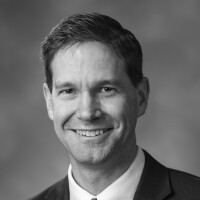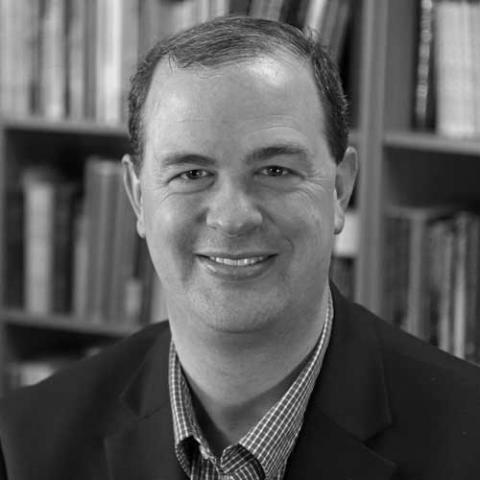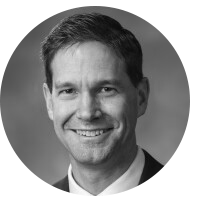So I’m very excited to introduce a dear friend, whom I would even say is a brother of mine, Faris Azhar. He is a tour guide here in Israel, a local guide with a very interesting background. He belongs to the Aramaic Orthodox denomination, a Christian group in Israel, one of the first denominations in the country. What’s unique is that they still speak the language of Jesus, Aramaic, which was used for part of the Bible. Many of the disciples also spoke Aramaic, and that is a privilege. This is something they are proud of – preserving the language of our Lord. So, we’re gonna have Faris share with us the Lord’s Prayer in Aramaic, the way His disciples would have heard Him speak it.
Abun d’bashmayo
Nethqadash shmokh
Teytey malkuthokh
Nehwey tzevyanach aykanna d’bashmayo of barah
Hawvlan lachma d’soonkanan yaomana
Washboqlan khaubayn aykanna daph hnan shbwoqan l’khayyabayn
Wela tahlan l’nesyuna
Ela patzan min bisha
Metul dilakhie malkutha wahayla wateshbukhta l’ahlam almin
Amen.
It’s got a beautiful cadence, a beautiful sound to it. So now let’s get to the English version which is used in both Christianity vs Mormonism: “Our Father, who art in heaven.” I like the fact that this prayer begins with two words, ‘our father,’ because here’s Jesus with the group, and he’s speaking in the first person plural, our Father, pulling us into this familial relationship with Him, speaking to our Father, who art in heaven. It’s a beautiful thing to consider all the titles, all the ways we could address the sovereign, most powerful, all-knowing Being in the whole universe.
But he wants us to call him Father. There’s something beautiful there. So, “Our Father, who art in heaven, hallowed be thy name.” This demonstrates reverential respect and awe. Verse 10, “Thy kingdom come, thy will be done on earth as it is in heaven,” coming from the lips of Jesus, “Thy kingdom come, thy will be done.” That’s His whole life, Jesus does everything He does to establish the Kingdom of God on earth, and to have His will done. This is probably a really good place to introduce this idea that there is a notion in general Christianity, and sometimes even in the way we talk, in the Church, about the end of everything, when all is said and done, we often talk about will die will get resurrected, and will go to heaven, and be saved, and enter into our exaltation.
Three realities from the New Testament, from the teachings of Jesus, are that he is making Earth an outpost of Heaven. He’s not going to take us off of this earth and take us to Heaven to save us on fluffy white clouds. He’s bringing heaven here, He’s going to Celestialize this earth. He’s going to resurrect us, we don’t leave this body and this earth behind, to ascend to heaven, we are caught up to meet Him. And then we come down in the millennium, this concept is taught by NT, a Christian scholar, over in England. This idea that “thy kingdom come, thy will be done on earth, as it is in heaven.” He’s going to celestialize this planet.
It’s a beautiful doctrine when you consider our responsibility to build up the kingdom of God on the earth, and to take care of the earth and to take care of our bodies to the best we can. Because they’re all going to be celestialized someday. I know for many years of my life when I was younger, I would wait and hope. I wanted Jesus to come and just solve everything. I wanted Him to bring that kingdom. And as I’ve looked at these passages, and we can see that clearly we’re all invited to be part of spreading the kingdom of God, or the kingdom of heaven.
So will Jesus come and make things even better? Yes. Should we wait for him to do it? No. He has asked us to join now in making Earth more like heaven, make the kingdom of God spread on the earth, and we’ll have a more heaven-like experience. That’s the invitation in the face of all the challenges that we all are pretty clear about seeing in the world. We can make the world a better place. If we follow Jesus, as we see laid out here in the Scriptures. And the next verse says, “Give us this day our daily bread,” reminds me of having been out for two years in the wilderness. What did you do for the people of Mana for 40 years? The bread stuff of life every day, He does the same for us.
If you look at the Book of Mormon’s teachings on this, you’re invited in Alma chapter 33 to pray over everything. Which is an interesting overlap in Christianity vs Mormonism. We are to pray over flocks in our fields, in our houses, and our homes, and our families and children. It’s time this idea of “Give us this day, our daily bread,” what we need to be able to survive and thrive. And then verse 12, “forgive us our debts, as we forgive our debtors. And lead us not into temptation, but deliver us from evil.” Joseph Smith changed the beginning part of that to say, “and suffer us not to be led into temptation,” because the idea of God leading us into temptation doesn’t really fit.
And so he’s saying, “Please don’t don’t even allow us to be led into temptation, by whatever influence would take us that direction, but deliver us from evil.” And an ancient Jewish prayer was similar. The idea was, they would pray, if we come upon trials or tests, let us not fall or fail at them. And so we can see various things from Joseph Smith’s perspective that God is not going to lead us into temptation. Although he will allow us to be tried and tested. We might, like the ancient Jews, say, “Lord, bless me that I do not fall as I am tested.” And then he finishes his prayer with this line “for thine is the kingdom and the power and the glory forever. Amen.” It’s a beautiful thing to consider that sometimes we think about coming unto Christ.
Remember that when you come unto Christ, His whole purpose is to perfect you and to prepare the world, the kingdom, to be presented spotless, to the Father, as Doctrine and Covenants, section 76, verse 107, states that the kingdom is given to the Father. Jesus doesn’t keep it for Himself, He gives all of the glory, all of the honor, all of the kingdom to the Father, including you, as part of that kingdom. And then he goes to two verses where he discusses the Christian behavior of forgiveness. If you forgive men their trespasses, your heavenly Father will also forgive you. It’s an attribute of God to be able to forgive. But if you forgive not men their trespasses, neither will your Father forgive your trespasses.
I don’t know of any principle of the gospel that is more plainly laid out in verse 14-15 so simply, and it’s coming from the Savior here, saying, “if you want to be like God, you have to learn how to forgive even when people don’t deserve it.” That seems like a pretty sweet deal. It is for a lot of people, and you’ll get a lot in return. And then in verse 16, through 18, we come to the Christian behavior of fasting. Again, this idea of like, ‘let’s not show off our righteousness’. Again, Jesus is sticking to these principles, alms, prayer, and fasting. Three principles that should be considered when asking are Mormons Christian?Three different case studies of how you can be righteous, and a warning. Don’t do it for other people. Do it for God, do it for yourself. Beautiful. So it’s this idea of don’t even let people know you’re fasting, do it secretly, do it inwardly.
Wash your face. He’s not saying you have to do that literally every single time. The implication is, don’t walk around with a long face saying “yawn, fasting again for the third time this month.” And them saying, “Wow, he’s righteous, wow, look at how many times he’s fasting and how long he’s fasting.” He’s saying don’t do this for people to see. Now you go to verse 19. And he’s talking about treasures. “Lay not for yourselves treasures upon earth, where moth and rust does corrupt, and where thieves break through and steal.” You can spend your entire life seeking for money and treasures, things that this world would value. And he’s saying moth and rust, eventually with time will corrupt all of the treasures of the earth.
And so his solution is, “but lay up for yourselves treasures in heaven, where neither moth nor rust does corrupt. and where thieves do not break through nor steal.” My wife, on occasion, has shared this thought of trying to do something every day that will stay done. You know, you do the dishes, you do the laundry, you sweep the floor, you vacuum, you mow the lawn, you paint, all those things eventually get undone and you and you have to do with them. So we keep doing those. But I like that idea of finding something that you can do just as little as it may be every day. That will stay done. That won’t get undone. A kind word, a kind deed, a thoughtful act of service for someone, or a gift or a phone call, where it doesn’t get undone. You’re laying up treasures for yourself.
And then this beautiful line in verse 21, “For where your treasure is, there will your heart be also. Have you noticed that your heart’s desire actually aims your direction of life? The more you think about and desire something, the more you focus on it, and the more you go in that direction. Well, if you do that with fierce treasures, that’s where you’re going to spend all of your time and your energy and your effort trying to attain. But if our heart is turned heavenward to Christ, to Heavenly Father, that’s the direction we’re going to face. And then we’re going to reflect heaven’s love for other people. It’s just a beautiful principle.

By Dr. Tyler Griffin, Source Expert
Dr. Tyler Griffin embarked on his professional journey by teaching seminary courses for a period of six years in Brigham City, Utah. Following that, he dedicated the subsequent seven years to instructing at the Logan LDS Institute, located adjacent to Utah State University. Alongside his participation in the Seminary Preservice program, he spearheaded and supervised the implementation of the online seminary program. Dr. Griffin has been an educator at BYU for well over a decade and holds a co-founding position within the BYU Virtual Scriptures Group. His undergraduate degree is in Electrical Engineering, while both his master’s and doctorate degrees center around Instructional Technology. Dr. Griffin is the exclusive author of “When Heaven Appears Distant” co-author of “Come Unto Me: Illuminating the Savior’s Life, Mission, Parables, and Miracles” and co-editor of “Millions Shall Rediscover Brother Joseph.”

By Dr. Taylor Halverson, Source Expert
Dr. Taylor Halverson is a biblical scholar and instructional technologist. He serves as an Entrepreneurship professor in the BYU Marriott School of Business, where he contributes to the development of groundbreaking resources for BMC, including ScripturePlus and the Come Follow Me video series.

Fact Checked by Mr. Kevin Prince, Source Expert
Kevin Prince is a religious scholar and host of the Gospel Learning Youtube channel. His channel has garnered over 41,000 subscribers and accumulated over 4.5 million views. Mr. Prince also created the Gospel Learning App, a reliable platform where individuals seeking truth can access trustworthy answers to religious questions from top educators worldwide.
About Mormonism Explained
Mormonism Explained is a resource that was designed to provide objective and factual information about Mormonism, its history, doctrines, and policies. Our team of researchers consults experts and primary sources to present factual information on a variety of topics relevant to the Mormon Church.
Tags

